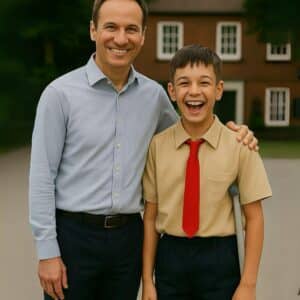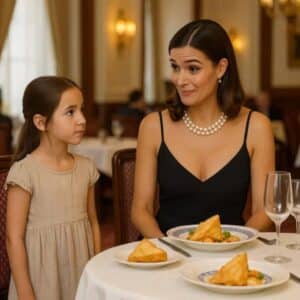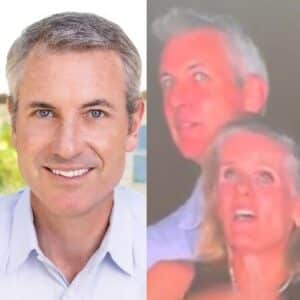They believed I was one foot in the grave — a frail old woman with barely enough strength to lift a spoon. But when I overheard my own children planning my headstone like it was a dinner reservation, something inside me shattered. Then, it burned.
They thought I was done.
They mistook my softness for surrender.
They forgot who I was.
Life, darlin’, is the wildest ride of all. I should know. I’ve ridden it for 74 years and five months. I’ve held joy in my hands and buried it in the earth. I’ve laughed until my ribs hurt and cried until there was nothing left but silence.
And if I’ve learned anything, it’s this: age doesn’t mean you stop mattering. There’s always something left in your soul worth standing for. And sometimes, the quietest people carry the fiercest fire.
I’m Rose.
And I raised three children with everything I had. Anna, my firstborn, so serious and practical. James, my middle child, always chasing approval. And Emma, my baby girl with the brightest eyes.
Their father, Walter, and I built a life out of hand-me-downs and hope. We scraped and stretched every penny, made meals out of thin air, turned birthdays into magic with thrifted decorations and a homemade cake. We didn’t have much, but we had enough.
We sent them to college. Me and Walter, we pinched and saved until our fingers ached. I still remember sitting in the audience, watching each one cross that stage in their cap and gown, crying behind my handkerchief, my chest so full I thought I’d burst.
Then they grew up. Moved on. Got busy.
Calls faded from daily to weekly to barely monthly. Sunday dinners turned into holiday pit stops. When the grandchildren came, the excuses did too.
“Ma, we’ve got a tournament this weekend.”
“Ma, the twins have a birthday party.”
“Ma, I’ll call next week — I promise.”
And I understood. I really did. Life moves fast. Kids get older. Everyone has their own mess to deal with.
But when Walter died six years ago, the silence became unbearable.
That house we’d built together suddenly felt like a tomb. I wandered from room to room for two years, touching his chair, folding his shirts just to feel like he was still there.
Then came the fall.
I laid on the cold kitchen floor for hours — my hip screaming, my mouth too dry to yell — until my neighbor finally found me.
The next day, my children came in like a cleanup crew. Efficient. Smiling too much. Saying the right things.
“It’s for your own good, Ma.”
“You’ll be looked after.”
“This place has everything you need.”
But the truth sat between the lines: We can’t take care of you.
They placed me in this nursing home like a donation in a charity bin.
I hated it at first. The room was smaller than my old pantry. The smell reminded me of antiseptic and forgetfulness. I cried myself to sleep for weeks.
But life has a funny way of reshaping grief. You don’t always get better — but you learn to carry it differently.
Pearl taught me how to play bridge. Mabel shared her love for murder mysteries. Hazel gave me her daughter’s leftover cookies.
We formed our own broken little family — the forgotten ones.
As for my children?
They visited maybe five times in four years.
They sent birthday cards signed by assistants, sometimes a tin of generic cookies at Christmas. Always too busy. Too tired. Too everything.
And I told myself it was fine. I said it enough times, I almost believed it.
Until last month, when my heart gave out briefly. One moment I was reaching for my glasses, the next, the floor was rushing toward me. When I woke up in the hospital, there they were — suddenly concerned. Suddenly attentive. As if they’d remembered I existed.
Anna brought flowers. James peppered the nurse with questions. Emma held my hand during the doctor’s explanation.
Even the grandchildren came — though their eyes stayed glued to their phones.
And I couldn’t help but wonder: Why now?
The answer arrived on a Tuesday, hidden in the laughter I wasn’t meant to hear.
Anna had called, just to chat — or so I thought. We talked about Pearl’s miraculous bingo streak. She told me about her daughter’s dance recital.
She didn’t hang up properly. And what came next gutted me.
“Ma’s sounding stronger today,” Anna said.
“Great,” James replied. “We should get moving on final arrangements. I already reserved a plot next to Dad.”
“You get a family discount at the cemetery?” Emma chimed in.
And they laughed. Laughed.
“Got the tombstone engraved already,” James said. “Just waiting on the date.”
“I’ll pay it now,” Emma joked. “Just to get it over with.”
It felt like a knife through my chest.
Not one tear. Not one flicker of hesitation.
They were already planning my death like a summer barbeque.
That night, I wept. Not from fear. Not even from sadness. From a burning sense of betrayal.
I’d given everything — my body, my dreams, my youth. And all I was to them now was a liability… a bank account… a date on a slab of stone.
But 74 years teaches you how to ride storms.
By the next morning, I had fire in my bones again.
Within the week, I was sitting up. By month’s end, I was walking. Eating. Smiling.
The doctor blinked. “You’re a tough one, Rose.”
“You have no idea,” I replied.
Then I made calls — not to my kids, but to my lawyer and my bank.
And then I made one final request: “Tell them to come this Saturday. Bring everyone. It’s urgent.”
You’ve never seen calendars clear that fast.
Anna canceled her hair appointment. James skipped his golf game. Emma got a babysitter.
The whole family — grandkids and great-grandkids — piled into the nursing home rec room like vultures circling a feast.
They smiled wide.
“Ma, you’re looking so much better.”
“I know,” I said. “Thank you all for coming.”
Mr. Carter, my lawyer, opened his briefcase. I gestured toward him.
“This is my will. The first version, anyway.”
He read it aloud. The house, the investments, the savings, the life insurance — all evenly split among my children and their children.
They leaned forward, grinning. Nodding. Satisfied.
“It’s fair,” James said.
“I thought so too,” I replied. “Until I realized fair isn’t always right.”
Their smiles faltered.
“Mr. Carter,” I said, “Please read the updated version.”
He pulled out a second document.
And he read:
“To my children — Anna, James, and Emma — I leave one dollar each. To my grandchildren, one dollar apiece.”
Gasps. Shouts. Eyes widened like smashed glass.
“What kind of joke is this?” Anna cried.
“No joke,” I said calmly. “I sold the house. Liquidated the savings. Donated most to this home and to cancer research. The rest… is mine.”
“But that’s our inheritance!” a granddaughter shouted.
“Yours?” I snapped. “That money was built by your father and me. While you were too busy to visit, too tired to call, too distracted to care.”
They froze.
“I heard you,” I said softly. “Every cruel joke. Every plan. Every grave detail.”
Emma sobbed. James looked pale. Anna stood but couldn’t speak.
“I’m not punishing you,” I added. “I’m freeing myself.”
“The remaining funds?” I smiled. “Are for travel. Pearl and I are going to the Grand Canyon next month. Then Paris. Maybe Venice.”
They stared like I’d lost my mind.
But for the first time in years, I felt sane.
As they filed out, silent and stunned, Pearl leaned over and whispered, “You really gave it all away?”
“Most of it,” I said with a wink. “But I kept enough to make memories. You in?”
She grinned. “Always.”
I don’t hate my kids. I don’t regret raising them.
But I needed them to understand: love isn’t something you cash in after neglect. Kindness isn’t weakness. And inheritance isn’t entitlement.
Me?
I’m seeing the Grand Canyon next month.
Time is too short to sit still and wait for tombstones.





